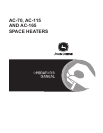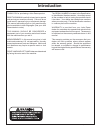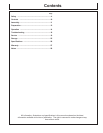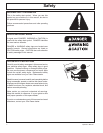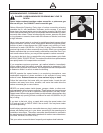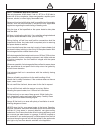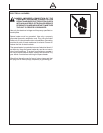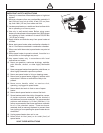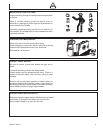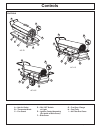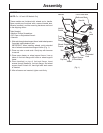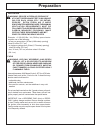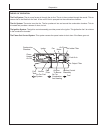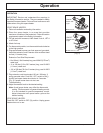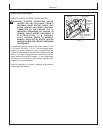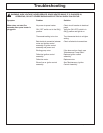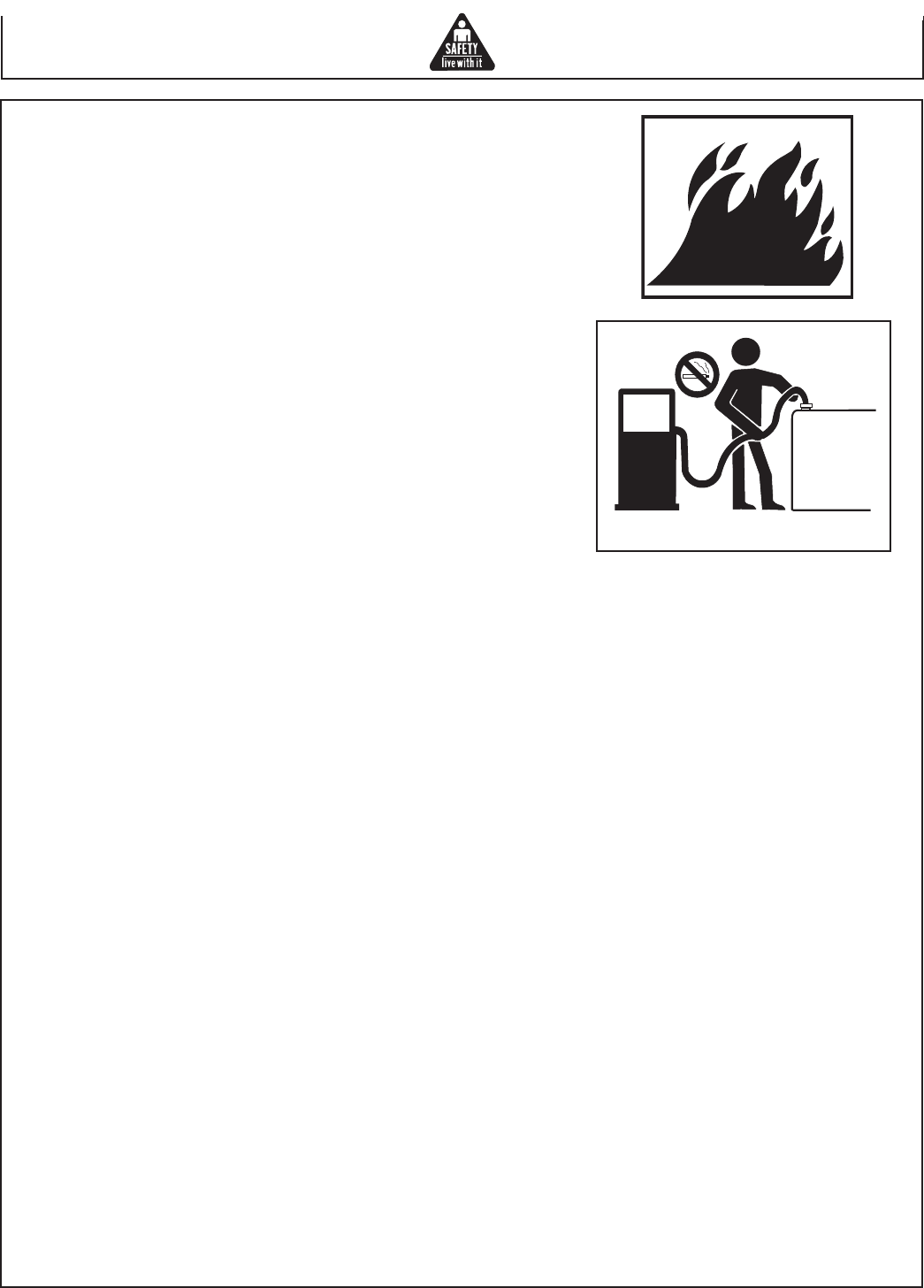
6 Operator’s Manual
SAFETY WARNING WHEN REFUELING
Use only kerosene, #1#2 diesel / fuel oil, JET A or JP-8 fuels to
avoid risk of fire or explosion. Never use gasoline, naphtha, paint
thinners, alcohol, or other highly flammable fuels.
Personnel involved with fueling shall be qualified and thoroughly
familiar with the manufacturer’s instructions and applicable
regulations regarding the safe fueling of heating units.
Only the type of fuel specified on the space heater’s data plate
shall be used.
All flame, including the pilot light, if any, shall be extinguished and
the space heater allowed to cool, prior to fueling.
During fueling, all fuel lines and fuel-line connections shall be
inspected for leaks. Any leaks shall be repaired prior to returning
the space heater to service.
At no time shall more than one day’s supply of space heater fuel
be stored inside a building in the vicinity of the space heater. Bulk
fuel storage shall be outside the structure.
All fuel storage shall be located a minimum of 25 feet (762cm) from
space heaters, torches, welding equipment, and similar sources
of ignition (exception: the fuel reservoir integral with the space
heater unit).
Whenever possible, fuel storage shall be confined to areas where
floor penetrations do not permit fuel to drip onto or be ignited by
a fire at lower elevation.
Fuel storage shall be in accordance with the authority having
jurisdiction.
Observe all safety regulations for the safe handling of fuel.
Handle fuel in safety containers. If the container does not have a
spout, use a funnel.
Do not overfill the fuel tank, leave room for the fuel to expand.
Do not refill fuel tank while the engine is running. Before
refueling the space heater, turn it off and let it cool down.
Fill the tank only on an area of bare ground. While fueling the
tank, keep heat, sparks and open flame away. Carefully clean
up any spilled fuel before starting engine.
Always fill fuel tank in an area with plenty of ventilation to avoid
inhaling dangerous fumes.
NEVER store fuel for your space heater in the home. Gasoline,
propane, kerosene, and other flammable liquids should be stored
outside of living areas in properly-labeled, non-glass safety
containers. Do not store them near a fuel-burning appliance, such
as a natural gas water heater in a garage. If the fuel is spilled or
the container is not sealed properly, invisible vapors from the fuel
can travel along the ground and can be ignited by the appliance’s
pilot light or by arcs from electric switches in the appliance.



